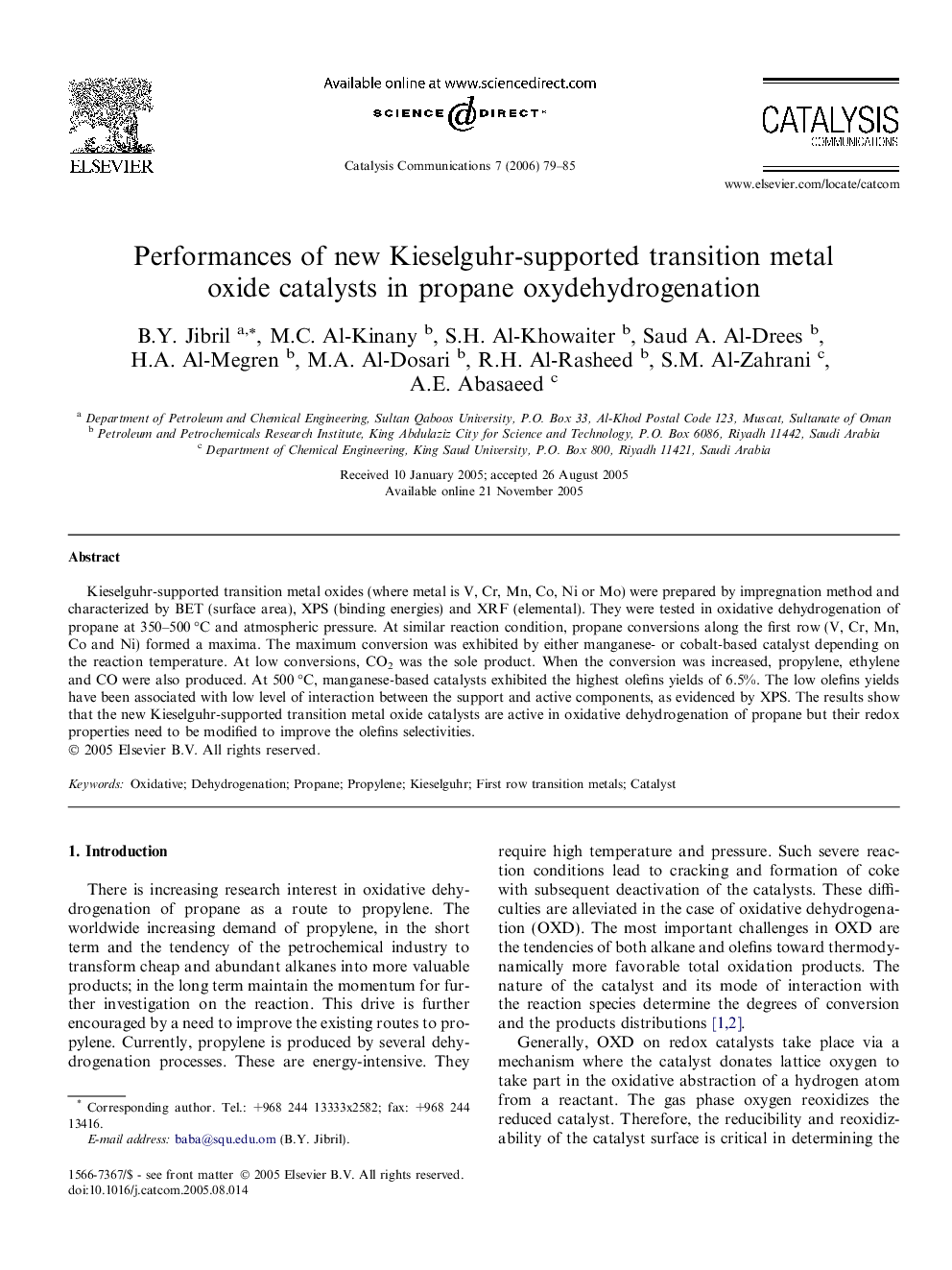| Article ID | Journal | Published Year | Pages | File Type |
|---|---|---|---|---|
| 52811 | Catalysis Communications | 2006 | 7 Pages |
Kieselguhr-supported transition metal oxides (where metal is V, Cr, Mn, Co, Ni or Mo) were prepared by impregnation method and characterized by BET (surface area), XPS (binding energies) and XRF (elemental). They were tested in oxidative dehydrogenation of propane at 350–500 °C and atmospheric pressure. At similar reaction condition, propane conversions along the first row (V, Cr, Mn, Co and Ni) formed a maxima. The maximum conversion was exhibited by either manganese- or cobalt-based catalyst depending on the reaction temperature. At low conversions, CO2 was the sole product. When the conversion was increased, propylene, ethylene and CO were also produced. At 500 °C, manganese-based catalysts exhibited the highest olefins yields of 6.5%. The low olefins yields have been associated with low level of interaction between the support and active components, as evidenced by XPS. The results show that the new Kieselguhr-supported transition metal oxide catalysts are active in oxidative dehydrogenation of propane but their redox properties need to be modified to improve the olefins selectivities.
